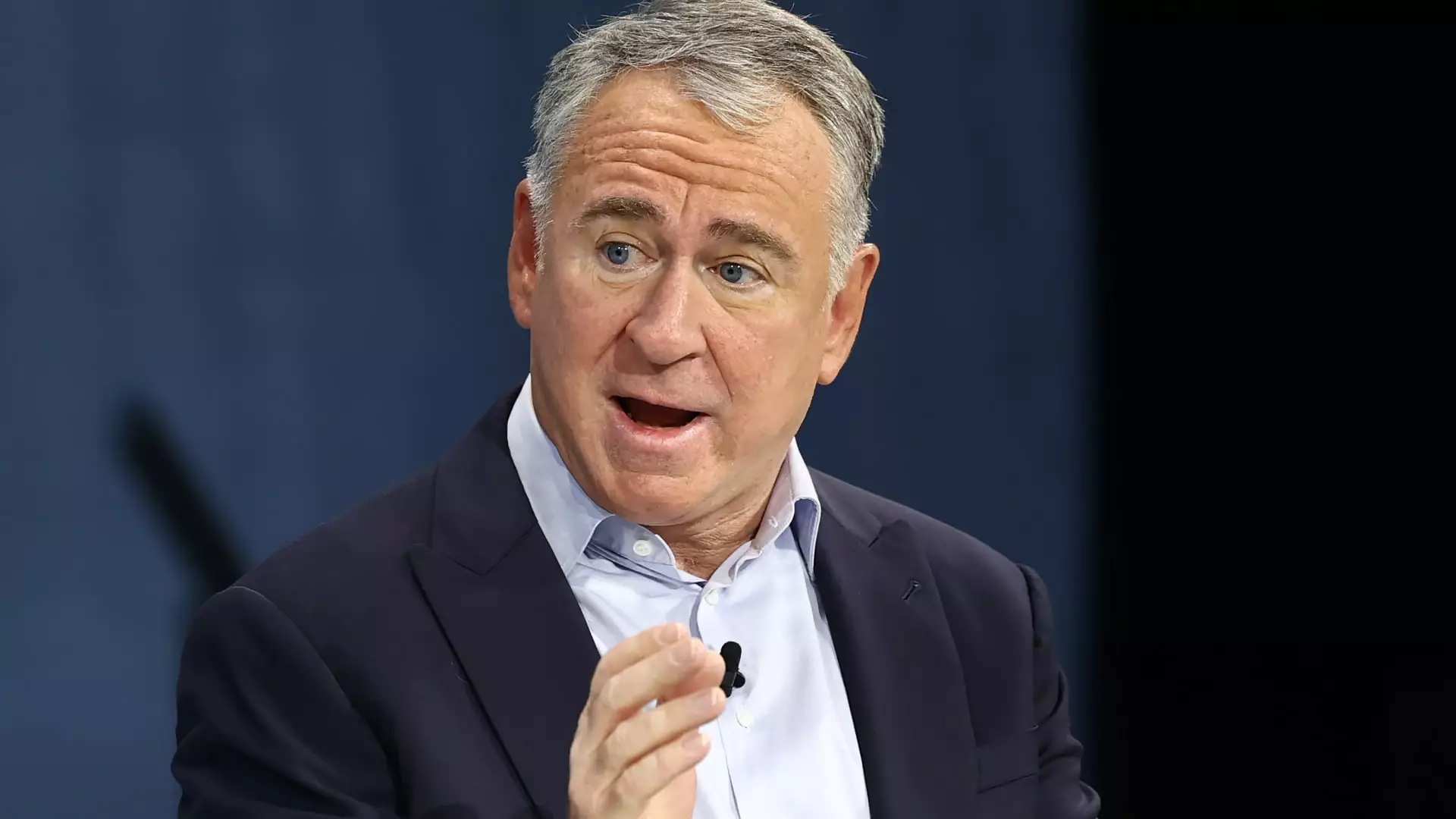In a striking commentary at the UBS Financial Services Conference, Ken Griffin, the CEO of Citadel, articulated deep concerns regarding the implications of President Donald Trump’s aggressive trade policies. Emphasizing the fallout of what he described as “bombastic rhetoric,” Griffin warned that the adversarial stance taken by the Trump administration could have profound repercussions on U.S. business dynamics and international relations. His remarks reflect a growing unease among business leaders regarding the unpredictability of America’s role as a reliable trading partner.
Griffin’s assertions suggest that resorting to hostile or overly aggressive negotiation tactics is counterproductive. He pointed out that such communication strategies undermine trust and reliability, crucial components of successful trade relationships. The immediate decision to impose a 25% tariff on steel and aluminum imports further exemplifies this combative approach, which Griffin believes leads to long-lasting damage in perceptions among CEOs and policymakers. When leaders perceive instability, it invites hesitation in long-term investments, which has the potential to stifle economic growth and innovation across various sectors.
Particularly troubling for Griffin is the impact of tariffs on multinational corporations, which thrive on stability and predictability for long-range planning. He raised concerns about how turbulent and shifting trade regulations complicate investment strategies, potentially endangering economic growth over the next decades. For companies that operate within a global framework, the inability to predict trade conditions may lead to unanticipated costs and reduced competitive advantages. This not only complicates financial forecasting but also fundamentally alters corporate strategies and operational models.
Moreover, Griffin’s insights extend beyond immediate economic impacts; he presented a larger critique of what he termed “crony capitalism.” This phenomenon arises when businesses and government officials develop closely intertwined relationships, often to the detriment of fair market competition. Tariffs, in Griffin’s view, can foster such an environment, encouraging speculative investments that prioritize political connections over market efficiency. This evolution could further entrench power imbalances, leading to an economic landscape where favor rather than merit drives success.
Ken Griffin’s observations at the conference encapsulate the weighty implications of punitive trade measures. As business leaders navigate an increasingly tumultuous environment, the call for strategic clarity and cooperative dialogue becomes paramount. Without a course correction towards collaborative engagement rather than adversarial posturing, the long-term prospects for both the U.S. economy and global trade may find themselves more precariously positioned than ever. As the business landscape transforms, vigilant leadership and thoughtful policy will be essential in combating the negative fallout of divisive trade practices.

